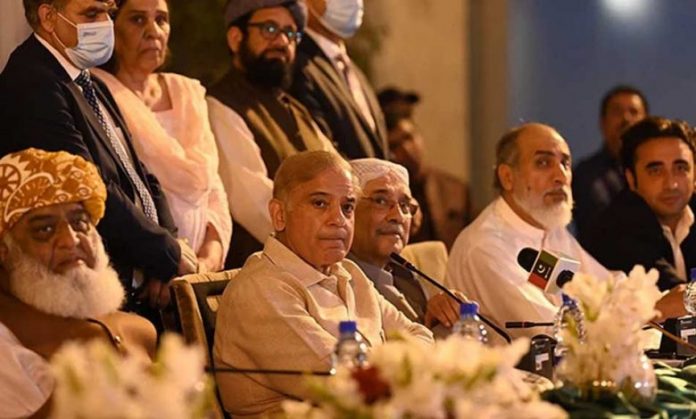
Anwar Zeb
Mulla Nasseruddin, in one of his stories after inviting a friend for dinner when quizzes his wife about less meat on the plate, she immediately blames the cat.
However, Mullah quickly jumped on the cat and weighed it on the scales. When he saw that the cat weighed exactly same as the meat he had bought, Mullah turned to his wife and said, ” if this is the cat, where is the meat; and if this is the meat, pray tell, where is the cat?
Something similar happened to Pakistan Democratic Movement (PDM) candidates in the Sunday’s by-polls as the most of the alliance candidates failed to poll the same numbers of votes which they have polled solo in 2018 general elections.
In case of NA-31, Peshawar, votes secured by Haji Ghulam Ahmed Bilour raises the question if the votes polled by him belonged to PDM allies, then, what happened to ANP’s own vote and conversely if the opposition parties voters voted for the elder Bilour at all.
The results compel one to say that at least to the extent of NA-24 Charsadda and NA-31 Peshawar, the alliance parties did not vote for ANP candidate and similarly, in NA-22 Mardan ANP and other parties workers did not vote JUIF’s Mualana Qasim.
On the other hand, in Peshawar and Charsadda, only ANP workers were visible while JUIF activists were active in Mardan. In case of Mardan, Maulana Qasim could easily have won even if PPP, ANP and PMLN had managed to mobilize even 10 percent of their voters.
In 2018 general elections, Haji Ghulam Ahmed Bilour had on polled 42,562 votes while PPP had 7506, PMLN 3000 and Muttahida Mjalis Amal had 11600 votes and this raises the question that what happened to the PDM votes in the by-polls. One can also question as to what happened to those several thousands of votes, which were polled by the JUIF candidate for Peshawar had polled in the local bodies elections.
A similarly situation is in play in Mardan, where Maulana Qasim had lost to the PTI candidate with a narrow margin of only 2000 votes. However, in the by-polls he lost with heavy margin of 8000 votes.
In 2018 general elections, he had polled 56,587 votes while in by-polls he managed to 68000 votes with the support of the PDM parties. Curiously, in 2018, ANP has polled 27,000 votes in the same constituency while PMLN had 37000 and PPP 13,000. This also raises the same questions if these are PDM votes, then, what happened to JUIF own voters.
Similarly, ANP’s chief Asfandyar Wali Khan had polled 59000 votes, however, in the by-polls, hi son Aimal Wali Khan with the backing of PDM parties could only muster 68000 votes.
One can say that the PMLN, PPP and JUIF workers on this constituency did not vote for ANP candidate. JUIF had won 38000 votes in this constituency in 2018 while PPP had 10000.
However, one can argue that JUIF had contested the 2018 general elections on the MMA platform and since Jamaat Islami was contesting by-elections on its own, therefore, it got less votes this time.
However, PDM parties have been each other rival in the past and even their coalition is weaker as compared to MMA. To some extent, unnaturalness of the religious and secular parties’ marriage of convenience puts a question mark over the utility of such an alliance.
Also it is really difficult to make understand that everything is possible in politics.
Perhaps the same happened in the by-polls and where ANP workers did not vote JUIF while the JUIF workers did not vote for ANP.
JUIF has been vocal against secular ideology of PPP and ANP while ANP has in the past been lampooning JUIF as Taliban sympathizers and even the polls results show that it will take considerable time to address the differences among these parties’ workers.







